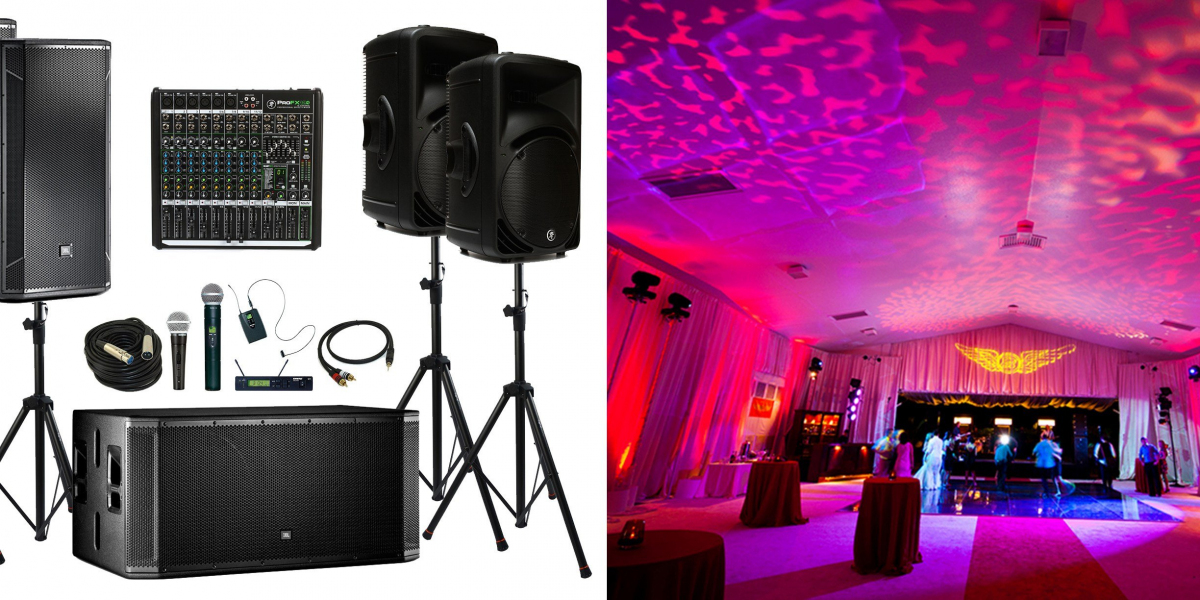However, speaker issues can arise unexpectedly, potentially disrupting the flow of the event. Understanding common speaker problems and how to troubleshoot them is essential for smooth, fail-safe events. With the right preparation and equipment, such as audio sound rentals from reliable providers like Rent For Event, you can ensure that these issues are minimized and quickly resolved.
In this article, we’ll explore some of the most common speaker issues at live events and provide practical tips for troubleshooting them.
1. No Sound from the Speakers
One of the most common and alarming issues during a live event is when the speakers produce no sound at all. This can occur due to a variety of reasons, from loose cables to incorrect system settings.
How to Troubleshoot:
- Check the Power: Ensure that the speaker system is plugged in and powered on. It’s easy to overlook power cables, especially in large setups.
- Examine Cable Connections: Verify that all audio cables are securely connected to the appropriate inputs and outputs. Loose connections are often the culprit for sound loss.
- Check the Mixer Settings: The mixer is the control center for live audio, so make sure that all faders are up and nothing is muted.
- Verify the Audio Source: Ensure the device (microphone, instrument, or playback device) is turned on, connected, and transmitting audio.
In cases where you are using audio sound rentals from Rent For Event, they offer on-site technical support to troubleshoot these issues instantly.
2. Distorted or Crackling Sound

Distorted or crackling sound can ruin the listening experience and make it difficult for the audience to understand what's happening on stage. This issue is often related to poor signal quality or equipment malfunction.
How to Troubleshoot:
- Lower the Volume: Sometimes, distortion happens because the signal is too strong. Lower the input gain on the mixer or decrease the volume on your speakers to reduce distortion.
- Check for Cable Damage: Damaged or old audio cables can cause crackling sounds. Inspect all cables for wear and tear, and replace any faulty ones.
- Inspect Microphone Placement: If a microphone is too close to a speaker, it can cause feedback or distortion. Ensure that the microphones are properly placed to avoid sound interference.
- Use a Ground Loop Isolator: Sometimes, interference from electrical systems causes distortion. Using a ground loop isolator can help eliminate this issue.
When you rent equipment from a reputable audio sound rentals provider like Rent For Event, they ensure all cables and equipment are in excellent condition, reducing the chances of such problems.
3. Feedback (High-Pitched Whine)
Feedback is one of the most disruptive audio problems at live events. It occurs when the sound from the speakers is picked up by a microphone and amplified in a loop, resulting in a high-pitched whine.
How to Troubleshoot:
- Adjust the Microphone Position: Keep microphones away from the speakers and ensure they are pointing away from them.
- Lower the Gain: Reducing the microphone gain on the mixer can help prevent feedback.
- Use Directional Microphones: These types of microphones pick up sound from one direction and reject sound from others, minimizing feedback risks.
- Activate the Equalizer: Use the mixer’s equalizer to cut the problematic frequencies causing the feedback.
At Rent For Event, their audio sound rentals include high-quality microphones and mixers with built-in feedback reduction features to ensure smooth audio performance.
4. Uneven Sound Distribution

A common issue at live events is uneven sound distribution, where some areas of the venue have great sound quality while others struggle to hear anything. This can happen due to poor speaker placement or insufficient sound coverage.
How to Troubleshoot:
- Reposition the Speakers: Ensure that your speakers are positioned to cover the entire venue evenly. Avoid placing them too close to walls, as this can cause sound reflections that muddle audio clarity.
- Add More Speakers: In larger venues, a single pair of speakers may not be enough. Adding additional speakers can ensure full coverage across the audience.
- Check the Mixer’s Panning: Ensure the audio mix is balanced between the left and right speakers so that both sides of the audience receive even sound.
- Use a Delay System: In large venues, using delay speakers can help distribute sound more evenly, ensuring that everyone hears the performance clearly.
Rent For Event provides audio sound rentals that include strategically designed speaker systems for venues of all sizes, ensuring even sound coverage throughout the event.
5. Volume Levels Inconsistent Between Sources
Inconsistent volume levels between microphones, instruments, and playback devices can make the event sound unprofessional. This issue often occurs when different audio sources are not properly balanced in the mixer.
How to Troubleshoot:
- Set Levels Before the Event: Conduct a thorough soundcheck before the event begins to ensure that all audio sources are properly balanced.
- Use Compression: A compressor can help smooth out audio levels by automatically adjusting the volume of quieter or louder sounds.
- Monitor the Mixer: During the event, have a dedicated sound engineer monitor the mixer to ensure consistent levels.
With audio sound rentals from Rent For Event, you can ensure that your event has professional-grade equipment like compressors and mixers that make managing multiple audio sources easy.
6. Speaker Overheating

Speaker overheating is less common but can occur during long events where the equipment is used at high volume for extended periods. Overheating can cause speakers to shut down unexpectedly.
How to Troubleshoot:
- Monitor Speaker Usage: Keep an eye on how hard your speakers are working, especially during high-energy performances.
- Allow for Airflow: Ensure that there’s enough airflow around the speakers and amplifiers to prevent overheating.
- Use a Fan or Cooling System: In particularly hot environments, consider using fans or cooling systems to keep your audio equipment running smoothly.
With audio sound rentals from Rent For Event, they offer high-quality, durable equipment designed for long-term use, reducing the chances of overheating.
Conclusion
Troubleshooting common speaker issues at live events can be stressful, but with proper preparation and high-quality audio sound rentals, these problems can be quickly resolved. Rent For Event is a full-service AV production and equipment rental company that specializes in providing reliable audio, video, lighting, and staging solutions nationwide. Their expert team is ready to ensure your event runs smoothly, with fail-safe AV equipment and on-site technical support. Whether you’re planning a small corporate event or a large-scale concert, having the right audio equipment is key to delivering a seamless experience for your audience.









